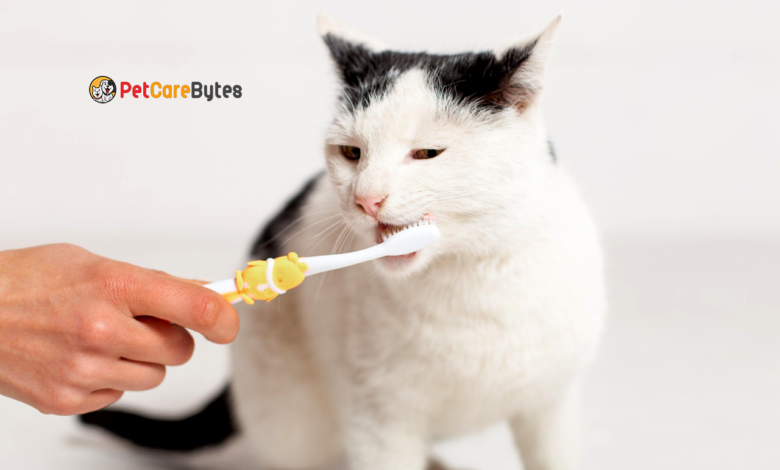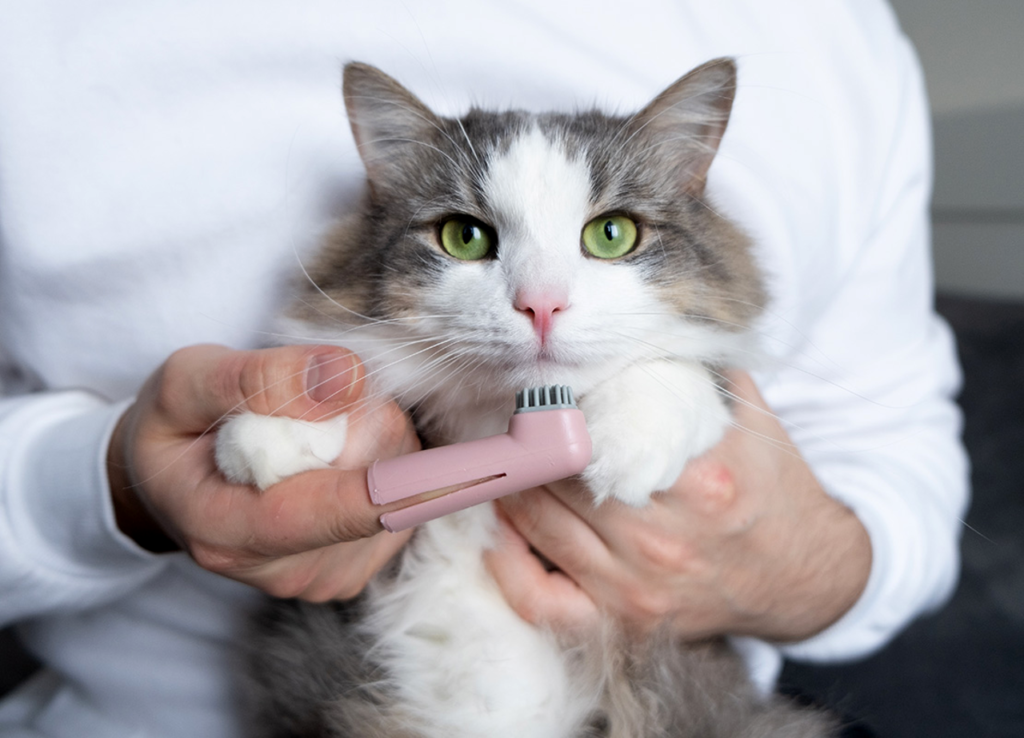
Stomatitis in Cats: Everything You Should Know
If you’re a cat owner, you probably know how important it is to keep a close eye on your feline friend’s health. Stomatitis, a common oral health issue in cats, can be a cause of concern. In this comprehensive guide, we’ll delve into everything you need to know about stomatitis in cats from its causes and symptoms to diagnosis, treatment, and prevention.
Read More: 7 Signs of a Pet Dental Emergency
Introduction to Stomatitis in Cats
Stomatitis, a condition that affects a cat’s oral health, can be a cause of concern for pet owners. It involves inflammation of the oral mucous membranes, particularly the tissues surrounding the gums and the back of the throat. Stomatitis in cats can be extremely uncomfortable for cats and can impact their overall well-being. In this article, we will delve into everything you need to know about stomatitis in cats, from its causes and symptoms to available treatments and prevention strategies.
Understanding Stomatitis

What is Stomatitis?
Stomatitis refers to the inflammation of a cat’s mouth and gums. It can lead to painful sores, difficulty eating, and overall discomfort. While the exact cause of stomatitis isn’t always clear, it’s believed to be related to the cat’s immune response to dental plaque.
Types of Stomatitis
There are different types of stomatitis that can affect cats. The most common forms include:
- Feline Gingivostomatitis
- Linear Gingival Erosion
- Eosinophilic Granuloma Complex
Each type presents with unique symptoms and requires tailored treatment approaches.
Causes of Stomatitis in Cats
Dental Hygiene
Poor dental hygiene is a significant contributing factor to stomatitis in cats. If dental care is neglected, plaque buildup can lead to inflammation and oral health issues.
Immune System Factors
Some cats may have an overly reactive immune response to the presence of dental plaque. This exaggerated response can result in severe inflammation and discomfort.
Viral Infections
Viral infections, such as feline calicivirus, have been associated with stomatitis development. These infections weaken the immune system and contribute to oral health problems.
Recognizing the Symptoms
Signs of Stomatitis
Cats with stomatitis may exhibit various symptoms, including:
- Difficulty eating: Cats may struggle to chew their food due to oral pain.
- Excessive drooling: Excess saliva production can be a sign of oral discomfort.
- Bad breath: Foul breath can indicate underlying oral health issues.
- Pawing at the mouth: Cats might paw at their mouth in an attempt to alleviate pain.
Oral Discomfort Indicators
Cats in discomfort may show behavioral changes like:
- Avoiding food: Cats may become picky eaters or refuse to eat altogether.
- Agitation: Oral pain can make cats irritable and less sociable.
- Grooming changes: Cats might groom less due to oral discomfort.
Diagnosing Stomatitis
Veterinary Examination
If you suspect your cat has stomatitis, a thorough veterinary examination is essential. Your veterinarian will inspect your cat’s mouth, gums, and teeth for signs of inflammation and sores.
Additional Tests
In some cases, additional tests like dental X-rays or oral swabs may be necessary to assess the extent of the condition and plan appropriate treatment.
Treatment Options
Dental Care
Maintaining good dental hygiene is vital for managing stomatitis in cats. Regular teeth brushing and professional dental cleanings can help prevent plaque buildup.
Medications
Veterinarians may prescribe medications such as antibiotics and pain relievers to alleviate inflammation and manage discomfort.
Surgical Options
In severe cases, surgical options like tooth extraction or gingival tissue removal might be considered to provide relief.
Managing Stomatitis at Home
Proper Oral Hygiene
As a cat owner, you can contribute to your cat’s oral health by brushing their teeth regularly and providing dental-friendly treats.
Diet Considerations
Consult your veterinarian for dietary recommendations that support your cat’s oral and overall health.
Preventing Stomatitis
Regular Vet Visits
Routine veterinary visits allow for early detection and intervention, reducing the risk of severe stomatitis in cats.
Vaccinations
Keeping your cat up-to-date on vaccinations, including those targeting viral infections, can lower the chances of stomatitis development.
Home Care Practices
Implementing a home care routine that includes dental hygiene and monitoring oral health is crucial.
Coping with Stomatitis: Insights from Veterinarians

Expert Advice on Treatment
Veterinarians emphasize the importance of a multidisciplinary approach, combining dental care, medications, and surgery when necessary.
Long-term Outlook
While stomatitis in cats can be challenging, many cats with proper treatment enjoy an improved quality of life and reduced discomfort.
Quality of Life for Cats with Stomatitis
Pain Management
Efficient pain management is a cornerstone of caring for stomatitis in cats, ensuring they can eat and live comfortably.
Maintaining a Happy Cat
Cats thrive on love and attention. Providing an enriched environment and engaging with your cat can contribute to their well-being.
Support for Cat Owners
Emotional Well-being
Caring for a cat with stomatitis can be emotionally taxing. Reach out to support groups or online communities to share experiences and find solace.
Resources and Communities
Numerous resources are available online and through veterinary clinics to help cat owners navigate the challenges of stomatitis.
Read More: Complete Cat Health Guide for Every Life Stage
FAQ’s
- Can stomatitis be cured completely? Stomatitis can be managed effectively, but a complete cure might not always be possible. The goal is to minimize discomfort and enhance the cat’s quality of life.
- Are certain cat breeds more prone to stomatitis? While stomatitis can affect any cat, certain breeds might be more predisposed due to genetic factors. However, all cats benefit from good oral hygiene practices.
- Is surgery the only option for severe cases? Surgery is one of the options for severe cases, but it’s not the only one. Your veterinarian will assess your cat’s condition and recommend the most suitable approach.
- Can I use human toothpaste for my cat’s teeth? No, human toothpaste is not safe for cats. Always use toothpaste specially formulated for felines to avoid harming your pet.
- Are there any alternative therapies for stomatitis? While conventional treatments are commonly recommended, some cat owners explore complementary therapies like acupuncture or herbal supplements. Consult your veterinarian before trying any alternative approaches.
Conclusion
In conclusion, stomatitis in cats is a complex oral health issue that requires careful attention. By understanding the causes, symptoms, and treatment options, you can ensure your beloved feline friend receives the best possible care. Remember, early intervention and ongoing management are key to maintaining your cat’s oral and overall well-being.








One Comment